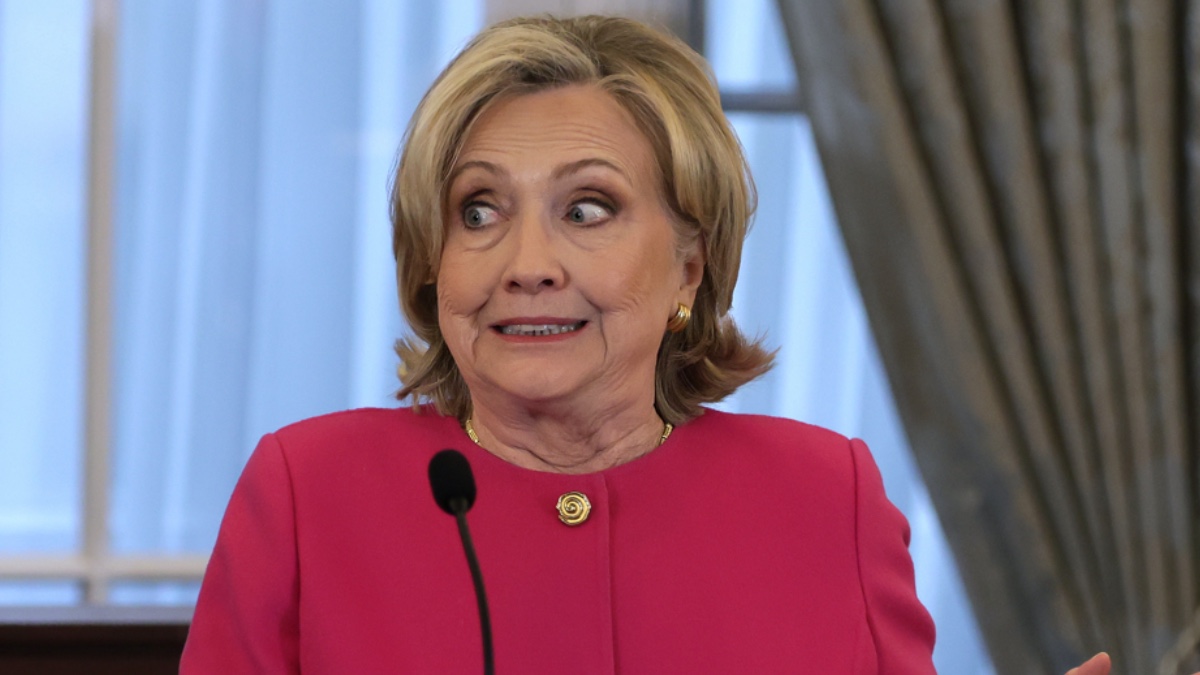In today’s political climate, there are few things most voters can agree on. So, when one of those universal concerns is expressed, why would any politician or ex-politician be dismissive of it?
Former presidential candidate Hillary Clinton appeared on The Tonight Show with Jimmy Fallon to promote the Broadway show Suffs, short for “Suffragists,” a play on which Clinton worked as a producer. During her late night appearance, she also answered questions about the upcoming 2024 presidential election.
For the most part, Clinton gave expected replies, but she did raise a lot of American eyebrows when she came across as uncaring about what many people — including independent voters and those on both sides of the political aisle — will tell you is among America’s biggest election-based issues. It’s become such a constant conversation, in fact, that Fallon posed a question about it, likely assuming Clinton would offer a thoughtful response.
The issue? United States presidential elections have only two candidates with a legitimate chance to win. The states are limited to two party-based options and it seems increasingly rare that one arises as a worthy candidate. The two-party system prevents many good candidates from running, unless they show loyalty to one of the two primary parties who, in turn, show loyalty to campaign donors.
That problem is magnified when the two candidates are men over 77 years old who already ran against each other. Not only do both candidates seem out-of-touch, but many voters have rightly expressed concerns over the president and former president’s health and mental acuity.
While interviewing Clinton, Fallon mentioned Biden and Trump’s renewed campaigns and asked “what do you say to voters who are upset that those are the two choices?”
Clinton’s response? “Get over yourself.”
Clinton then emphasized, rather plainly, that “those are the two choices.”
The two-party political system has been heavily criticized in recent years, and not just by independents. It’s seen pushback since the early days of the nation when, in 1780, John Adams expressed disdain over it. “There is nothing which I dread so much,” Adams wrote, “as a division of the republic into two great parties, each arranged under its leader, and concerting measures in opposition to each other. This, in my humble apprehension, is to be dreaded as the greatest political evil.”
71 percent of voters who were polled say they wish there were more options in a presidential election, according to Pew Research Center. While many will argue that political parties themselves are the problem, a desire for more options is a priority. Hence why many voters, including those polled, would be accepting of a third party inclusion.
Ironically, later in the Fallon interview, Clinton discussed Suffs in more detail. The story similarly covers a major election-based issue from the early 20th century — a woman’s right to vote. Clinton somehow missed the connection when noting how dismissive opponents of women’s suffrage were, and criticized naysayers by adding “you can’t just blow it off.”
Perhaps the former presidential candidate should take her own advice and not simply blow off an issue 71 percent of voters care about. Then again, she was once a major player in one of said political parties, so why would she welcome change? Particularly if that change miraculously results in the only real solution to the issue, which is the abolishment of political parties altogether?

